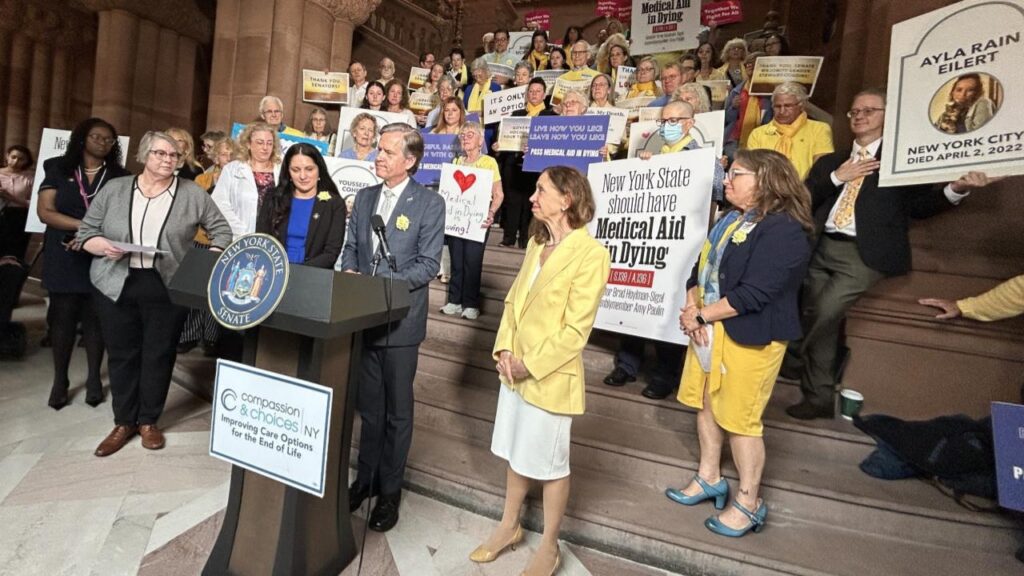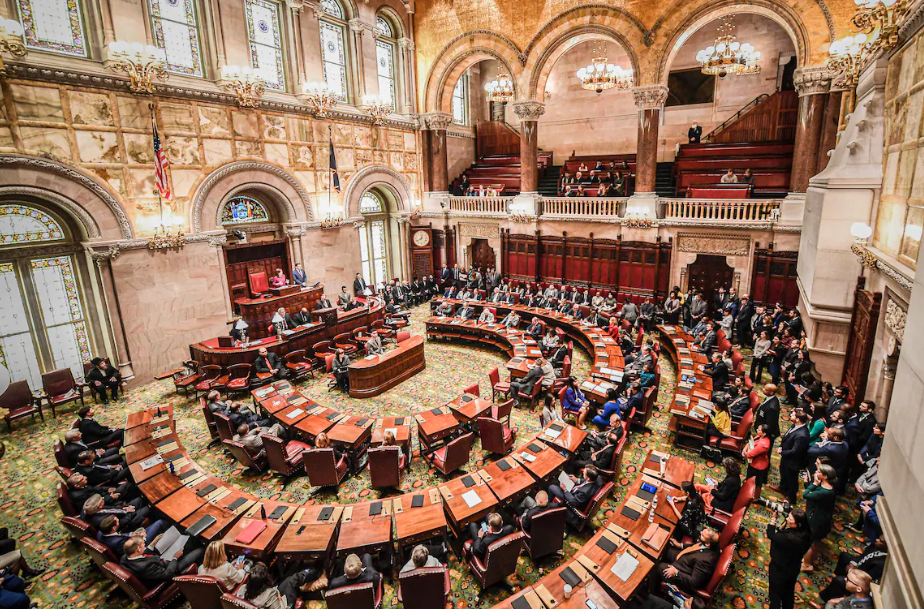New York just took a historic step. Lawmakers passed the Medical Aid in Dying Act, which could soon make New York the 12th state in the nation to legalize doctor-assisted suicide. Now, the decision lands squarely on Governor Kathy Hochul’s desk. Supporters hail it as a win for personal dignity. Critics say it opens dangerous doors. Either way, the stakes couldn’t be higher.

Doctor-Assisted Suicide Bill Passes in NY
| Takeaway | Stat |
|---|---|
| Number of U.S. jurisdictions with legal aid-in-dying laws | 13 (including D.C.) |
| Patient eligibility timeline | Must have less than 6 months to live |
| Vote margin in New York State Senate | 35-27 |
With her signature, Governor Hochul could make history—or she could slam the brakes on a bill nearly a decade in the making. Either way, the decision will echo far beyond Albany. How we treat the terminally ill says a lot about who we are as a society. This bill is about more than death; it’s about choice, dignity, and what it means to live—and die—on our own terms.
What the Bill Does
The Medical Aid in Dying Act (S.138/A.136) lets terminally ill adults request a prescription to end their life peacefully. To qualify, patients must:
- Be New York residents, 18 or older
- Have a terminal illness with less than six months to live
- Be mentally capable of making the decision
- Get confirmation from two physicians
- Make both an oral and a written request, with two witnesses
Unlike some states, New York’s bill doesn’t mandate a mental health evaluation unless a doctor suspects impaired judgment.

A Divided Debate
The vote came after years of gridlock and impassioned debate. State Senator Brad Hoylman-Sigal, a key sponsor, compared it to “a civil rights moment for patients in New York.”
“Nobody should have to endure unbearable pain when we can offer a humane choice,” Hoylman-Sigal said during floor debate.
Assemblymember Amy Paulin, whose sister died from a terminal illness, called the bill “deeply personal.”
But critics warn of potential abuses. The New York State Catholic Conference and disability rights groups argue the bill lacks safeguards.
“This is not about choice when patients feel coerced due to inadequate care options,” said Kristen Booth Glen, a former judge and elder law expert.
Opponents also point to the absence of mandatory psychological screening, which they say leaves vulnerable people unprotected.
What Governor Hochul Must Weigh
Governor Hochul has said she will take time to review the bill carefully. She hasn’t publicly committed to signing or vetoing.
That’s no small decision. Hochul has previously prioritized suicide prevention, mental health funding, and health equity in her administration. Signing this bill could seem at odds with those goals—unless implemented with ironclad oversight.
Real-World Impact
If signed, the law would go into effect later this year or early 2026. Implementation would require the state Department of Health to roll out training, oversight, and public education.
Doctors can opt out. Participation is voluntary. But healthcare systems will need clear protocols fast.
As someone who covered similar laws in California and Oregon, I’ve seen how education and transparency make or break public trust. Without it, even the best-intended laws sow confusion.
FAQs
Is assisted suicide legal in the U.S.?
Yes, in 11 states plus Washington, D.C. New York would be the 12th state if Hochul signs the bill.
Can doctors be forced to participate?
No. The law allows doctors, pharmacists, and healthcare facilities to opt out.
What if a patient is depressed?
There is no mandatory psychological exam, but if a physician suspects impaired judgment, a mental health evaluation can be required.






